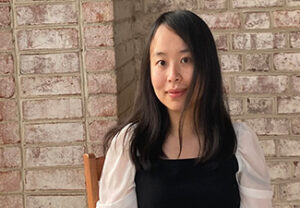
- This event has passed.
CANCELLED—History of Philosophy Research Group Talk (Qiu Lin, Simon Fraser)
Friday September 27, 2024, 11:00 am - 1:00 pm
Event Navigation

Unfortunately, this talk has to be cancelled due to unforeseen circumstances and will be rescheduled in the next academic year.
The History of Modern Philosophy Group is pleased to welcome as its guest speaker Qiu Lin, an assistant professor of Philosophy at Simon Fraser University. Her main research areas are early modern philosophy, history and philosophy of science, and Chinese philosophy, especially Chinese Islamic philosophy. Her work has received awards from the Philosophy of Science Association Women’s Caucus (now renamed as the DEI Caucus), the British Society for the History of Philosophy, and the Metaphysical Society of America; additionally, she has also won two subgrants from major John Templeton projects.
Talk Title
Du Châtelet on Sensory Perception, Bodies, and Simple Substances
Talk Abstract
In chapter 7 of her magnum opus, Foundations of Physics (1740 & 1742), Émilie Du Châtelet attempts to explain why we only ever experience extended bodies even if non-extended simple substances are the only beings that ultimately exist on the metaphysical ground floor. While Du Châtelet repeatedly praises Leibniz for his monadology, she differs from him in one crucial respect in her thinking about the monad: for her, monads are all ontologically interconnected with one another in such a way that together, they form a “Metaphysical union” (§133). This raises some interesting but hard questions: Du Châtelet, too, holds that human souls are monads, but how do they “fit” in the said Metaphysical union? What kind of relation do the internal states of the soul stand in with that of other union members? This paper provides answers to these questions on Du Châtelet’s behalf. By drawing attention to a passage that has so far received little scholarly attention, I will reconstruct Du Châtelet’s account about sensory perception, and argue that this account is key to understanding her explanation of bodies, qua sensible beings, in terms of monads, qua beings beyond our sensory experience.
One of six departmental Research Interest Groups, the History of Philosophy Group explores topics in ancient and/or medieval philosophy, the period from Descartes to Kant, and Jewish philosophy from the medieval period to the 20th century.
SHARE